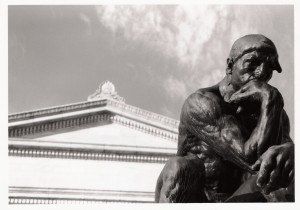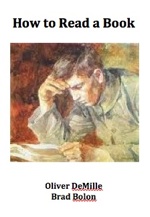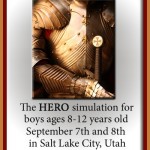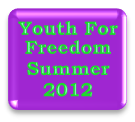The Art Being Wise II
|
|
|
|

The major reasons for public education in history have included:[i]
- To benefit the "neighborhood" by protecting
minors from ignorance: Literacy
- To make democracy work: Citizenship
- To provide equality of opportunity: Social
Justice/Job Training
- To promote the quest for "common values":
- Religious
communities: Morality
- Secular
communities: Tolerance
- To promote economic growth: Career Training
In contrast, the wealthy and private schools have typically
educated their young for one of two general themes:[ii]
- Happiness, fulfillment, self-improvement
- Leadership, achievement, service
Dr. Russell Kirk argues that the real purpose of education
is wisdom, pure and simple.[iii]
Wisdom
benefits so many things - all of the things listed above, in fact.
Without
wisdom, what in our society can succeed?
~Oliver DeMille, TJEd.org
Notes:
For more by Oliver on this subject, read:
|
|
Featured Resource |
|
|
From the Introduction:
For centuries, philosophers have
contemplated the meaning of Life. One convenient metaphor is that Life
is a school, a never-ending series of lessons in the art of being Human.
By this measure, all learning is worthwhile; the knowledge gained in
the school of "hard knocks" is just as valuable as that gained from
brick-and-mortar institutions.
Of course, we can avoid the "knocks" for
ourselves by choosing to discover the truths revealed in the trials of
others. The core of such self-education is a good dose of classics.
However, even a constant
diet of Great Books is useless if we do not study in a way that helps us
to properly digest their Ideas!
Readers may be divided into four classes:
- Sponges, who absorb all that they read and return it in nearly the same state, only a little dirtied.
- Sand-glasses, who retain nothing and are content to get through a book for the sake of getting through the time.
- Strain-bags, who retain merely the dregs of what they read.
- Mogul diamonds, equally rare and valuable, who profit by what they read, and enable others to profit by it also.
~Samuel Taylor Coleridge
Product Description
33-page pdf download, graphics-rich,
viewable on computer or other pdf-enabled viewer. (For nook or Kindle,
consult your product manual or customer service for optimal viewing of
pdf files)
|
|
|
Getting Started
|
|
|
|
by Rachel DeMille
You know, some people hear the principles of Leadership Education (TJEd "tee-jay-ed") articulated just once and think, "Right! That makes perfect sense!"
They are ready to just go for it.
If
this describes you, getting started is pretty simple: Make a list of
your personal classics, and pick one.
You know, the one you've been
waiting for just the right time to read?
Give yourself permission to
make your own education a priority, carry that book around with you, and
get through it--or should I say, get it through you.
CONNECT WITH US
Oliver DeMille:
Rachel DeMille:
TJEd:
When you click here to shop for the resources you need, you get the great amazon prices and service, and amazon shares a portion of their revenue with TJEd.
| |








